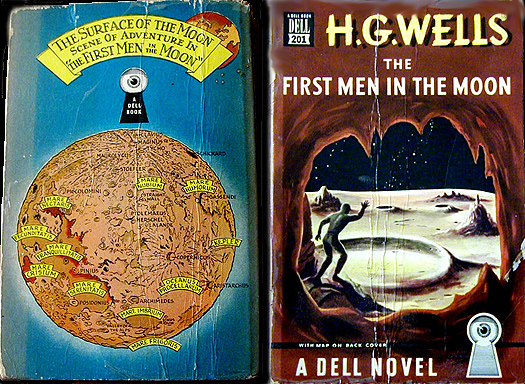Difference between revisions of "January 21, 2015"
| Line 51: | Line 51: | ||
<div align="center"></div> | <div align="center"></div> | ||
<p> </p> | <p> </p> | ||
| − | + | {{wiki/ArticleFooter}} | |
| − | |||
| − | |||
| − | |||
| − | |||
| − | |||
| − | |||
| − | |||
| − | |||
| − | |||
| − | |||
| − | |||
Latest revision as of 17:53, 1 February 2015
Sci-Fi Moon
Originally published January 21, 2004
Image Credit: Ebay |
|
Sci-Fi Moon Many scientists and engineers who worked on the Apollo project in the 1960s reported being inspired by science fiction stories that they read as teenagers. This wonderful cover for a 1928 paperback (found a year or so ago on Ebay - don't know who the buyer or seller were!) is the kind of space art (and text) that enchanted me some decades later. The cover offers the enticement of a person (in a Spiderman-tight space suit?) amidst the craters and crags of the Moon. The back cover is a simple, but relatively accurate, map of the Moon with actual lunar names correctly placed. Are young people stimulated by today's science fiction - or have our science accomplishments eliminated such imaginative dreaming? Related Links: Yesterday's LPOD: French Moon Tomorrow's LPOD: Ring Around the Moon |
Author & Editor: |
COMMENTS?
Register, Log in, and join in the comments.




